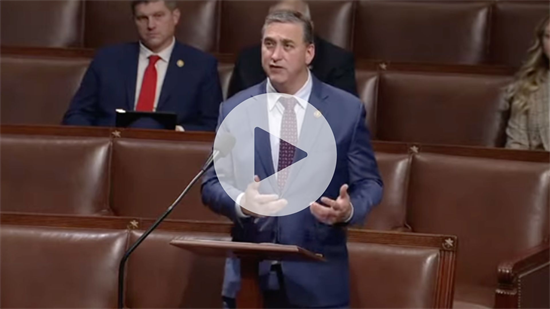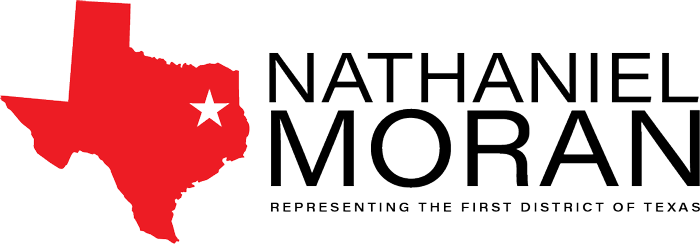The House passed the Prove It Act, legislation led by Congressman Nathaniel Moran (R-TX-01), Congressman Brad Finstad (R-MN-01), and Congresswoman Yadira Caraveo (D-CO-08) to strengthen protections for small businesses established through the Regulatory Flexibility Act (RFA). The legislation passed the House with a vote of 208-196.
“Federal agencies seem to ignore the reality and the harm that their regulations cause, which only further discourages American innovation and small business growth,” said Congressman Moran. “The Prove It Act empowers small businesses to petition the Small Business Administration to review proposed federal regulations and gives them the tools to challenge unnecessary regulation imposed them – tools which they do not have today."
“It brings more accountability and transparency to the work of government agencies and reaffirms our commitment to stand with small business,” continued Congressman Moran. “If we are going to stand on the side of government or small business, I choose to stand on the side of small business. Small businesses are the backbone of our economy, and their innovation keeps the spirit of the American dream alive.”

Watch Congressman Moran’s Floor Remarks Ahead of the Vote HERE
Timeline of Congressman Moran’s Work on the Prove It Act:
- In February 2024, Congressman Moran, Congressman Finstad, and Congresswoman Caraveo introduced the Prove It Act.
- In March 2024, the House Judiciary Committee, on which Congressman Moran serves, passed the Prove It Act.
Specifically, the Prove It Act Would:
- Create a way for small businesses to raise concerns when federal regulators do not consider both the direct and indirect costs their regulations place on them;
- Allow small businesses to ask their chief advocate in government to review agencies’ work and make the government prove they are fully compliant with already existing laws;
- If regulators fail to comply with this review process, then small businesses will be exempt from the agency’s regulations altogether; and
- Ensure small businesses can easily access preexisting guidance documents online and create a way for small businesses to directly raise questions or concerns with their regulators.
Background on Need for the Prove It Act:
- The RFA was signed into law in 1980 and requires federal agencies to analyze and take into account the economic impact regulatory actions have on certain entities, especially small businesses, small non-profits, and local jurisdictions of government. If found to have a significant impact, the government is directed to seek a less burdensome alternative.
- The RFA has been estimated to save small entities more than $200 billion and has served as a critical injunction to crippling federal regulation. Unfortunately, in the past decade, federal agencies have abandoned this statute and, in some cases, have not met the requirements set out by the RFA. The Prove It Act gives small businesses a voice again in the decision-making process when it comes to burdensome government overreach.
Supporters of the Prove It Act include: Americans for Prosperity, Heritage Action for America, Americans for Tax Reform, Job Creators Network, U.S. Chamber of Commerce, National Federation of Independent Business, Independent Community Bankers Association, National Association of Insurance and Financial Advisors, National Small Business Association, American Farm Bureau Federation, National Cattlemen’s Beef Association, National Association of Realtors, National Association of Manufacturers, American Bakers Association, Associated General Contractors, American Bankers Association, and more.
Full text of the legislation can be found HERE.
###



